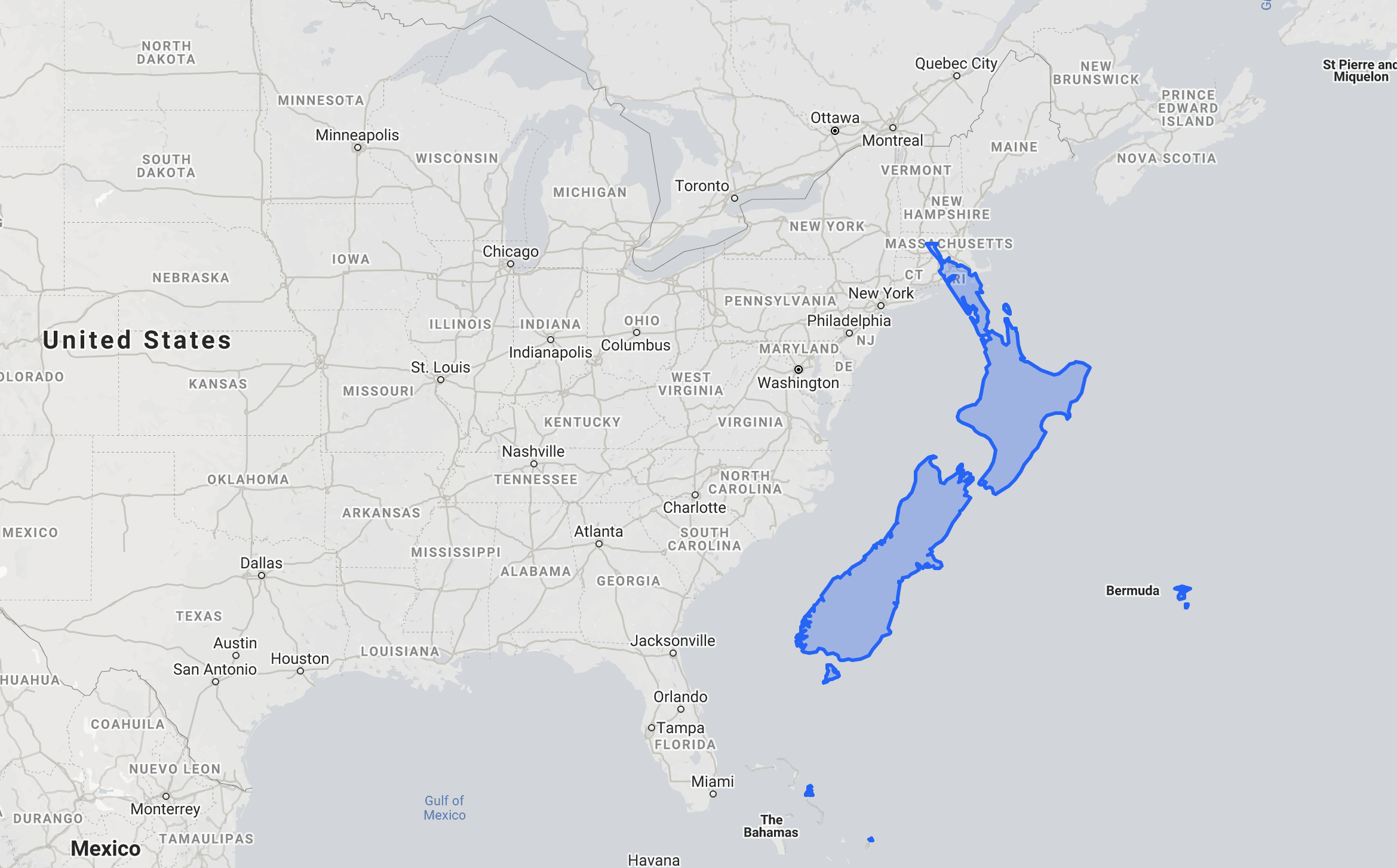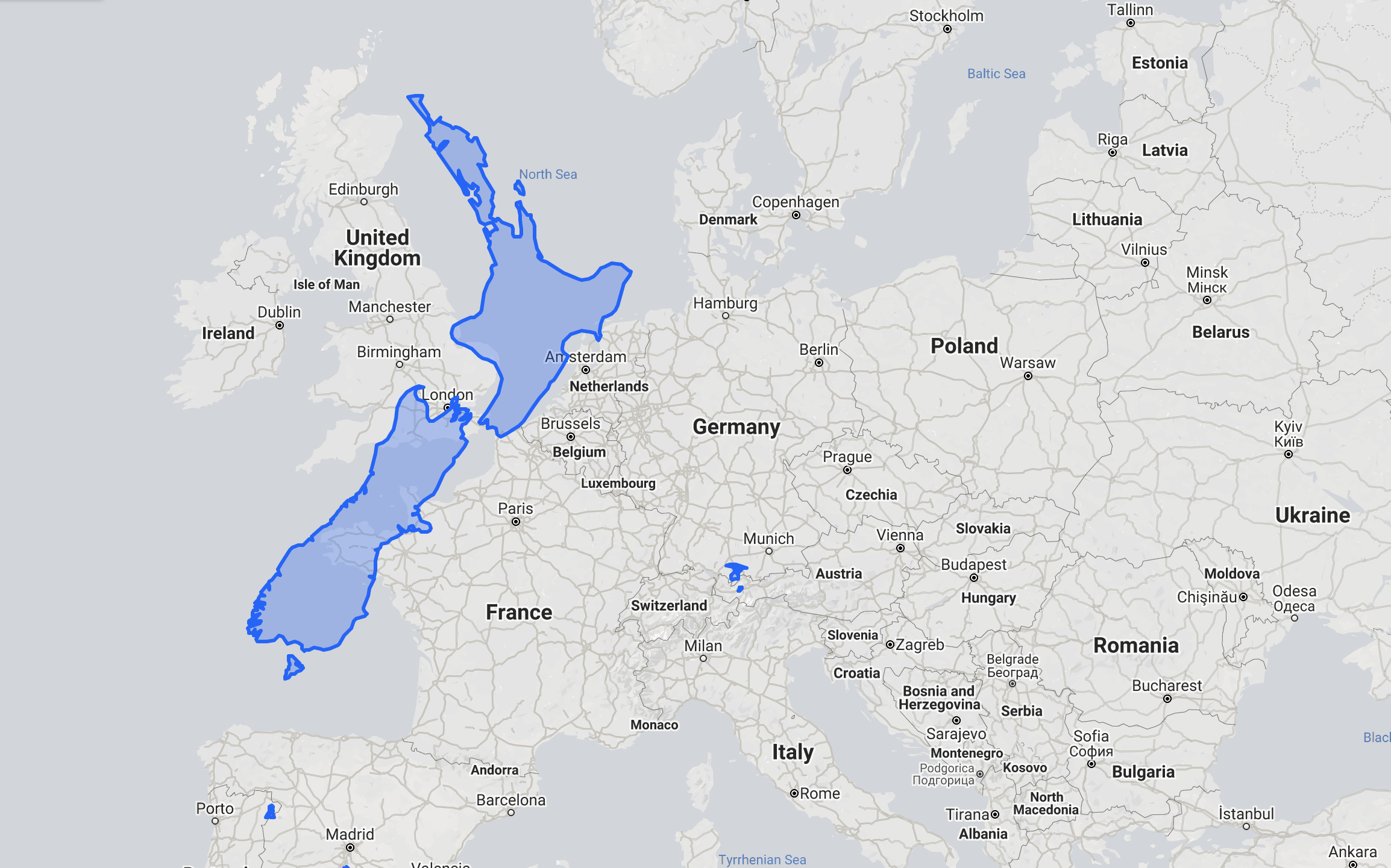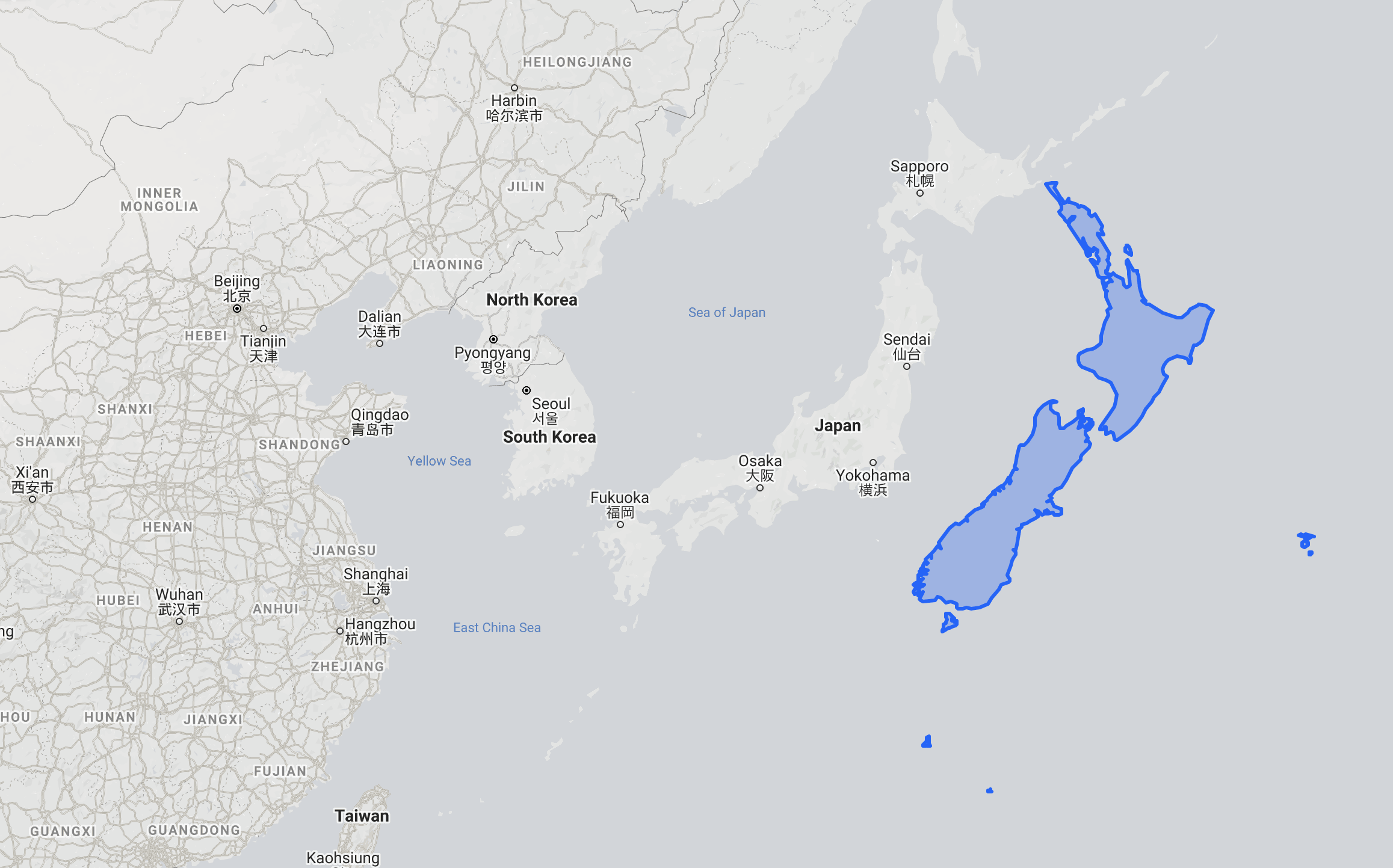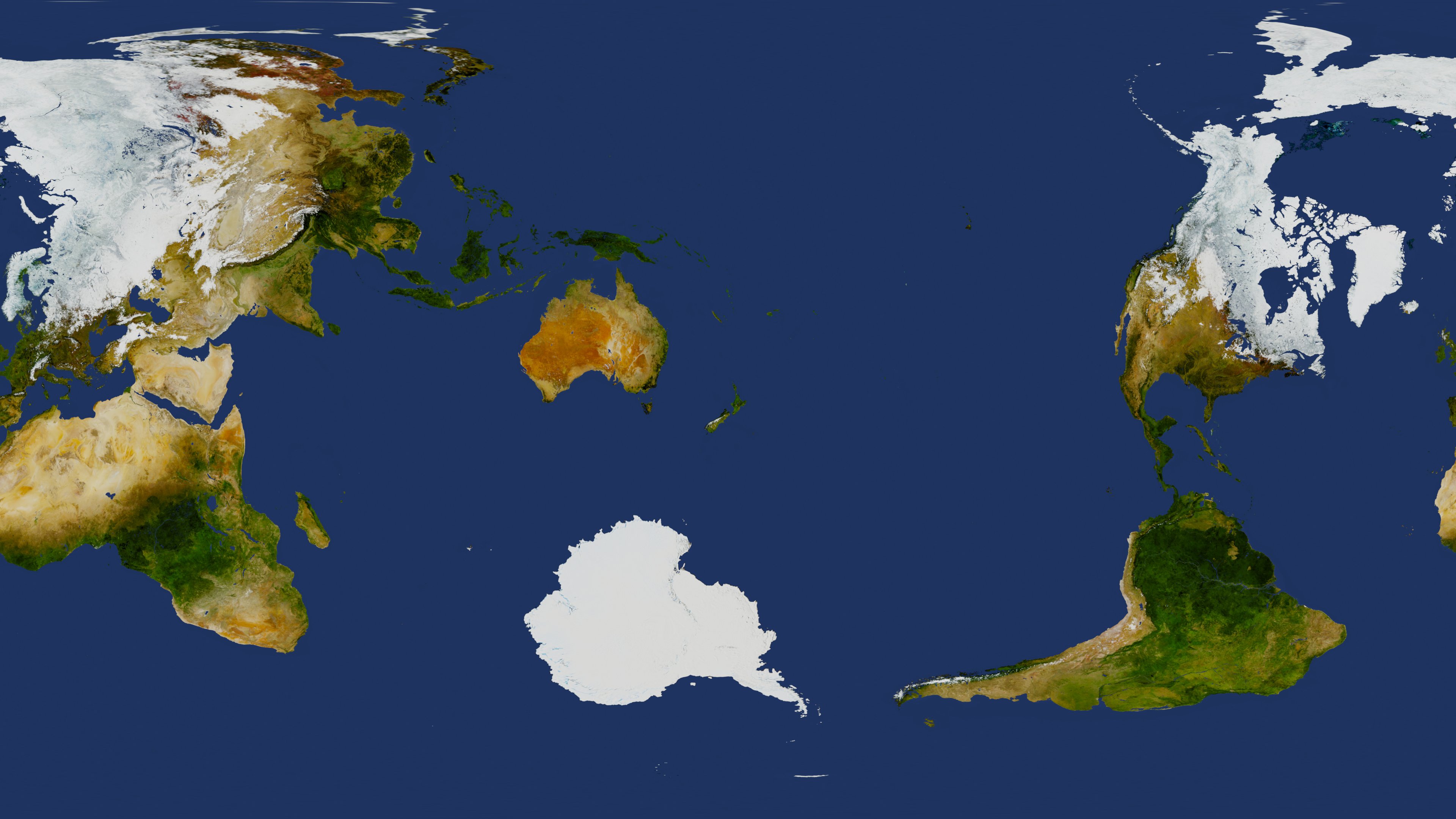I live on the outskirts of a small town. It’s out of the way.
Whenever I listen to the traffic report on the news, I wonder if people who are stuck in congestion in the bigger cities like Auckland or Wellington can imagine how different it is where I live?
New Zealand is often condescendingly described as a small island a long way from anywhere.
Is it, though?
When we overlay them against other more recognisable land masses, Te Ika-a-Māui and Te Waipounamu are revealed to be much larger than most of us realise.1
For example…



Source: Epic Maps
When we look at it this way we’re forced to admit: we’re not small at all, just very lightly populated, at least compared to those examples.
What do people living elsewhere in the world imagine life is like here? I assume they are a lot like Aucklanders stuck on the Southern Motorway in the morning rush hour.
We’re not a long way from anywhere, in the middle of nowhere, unless you believe right here isn’t somewhere.
I wish we would lean into this. Rather than resigning ourselves to the “tyranny of distance”, how could we re-frame this to highlight the advantages?

The biggest small country
Here is one idea…
Our tiny population means that the theory of six degrees of separation breaks down completely. The number of connections you need to traverse in order to get in contact with anybody is typically much smaller - maybe two or three at most.
Metcalfe's Law says “the value of a network is proportional to the square of the number of people connected to the network”. That would suggest that our tight connectedness is really valuable.
It makes us more open and accessible, less likely to be locked away in our own gated communities or stuck out of sight in a negative situation we are unable to escape. Anybody who might be inclined to hide can’t do that for long, and those that need help are not so easily ignored.
It makes us less reliant on the social cues that are vital elsewhere - like where you went to school or what job you have - because we can just ask others who know and quickly find out what somebody is really like.
It encourages good behaviour. Anybody who is a dickhead can reasonably expect to get exposed pretty quickly.
It is reflected back to us in statistics like the low levels of corruption and high levels of trust in our democratic system.2 It contributes to the ease of doing business.3
Of course, those things are not universally true. We should all be motivated to preserve and extend them to everybody, because they are some of the things that make us unique.
Perhaps we should stop thinking of Aotearoa as just a small country and instead position ourselves as a big small country. Perhaps the biggest small country!
That would at least force us to find a better aspiration than “punching above our weight”.
From the biggest the most is expected, right?
-
Maps generated by The True Size ↩︎
-
New Zealanders Place High Trust In Our Democratic System, Research New Zealand, 22 November 2020. ↩︎
-
Doing Business Report, World Bank, 2020. ↩︎
Related Essays
People, People, People
Ask the best startups what’s holding them back and they all point to the challenges of finding and keeping great people.
How to Get Old
We only get to be each age once. How many will we waste trying to be something that we’re not?
Building An Ecosystem
How can we build an ecosystem of innovative technology startups in New Zealand?
Derivatives
How do all of the programs designed to support startups actually help?
Monochrome
What can rugby teams and rowing squads teach us about building and managing diverse teams?